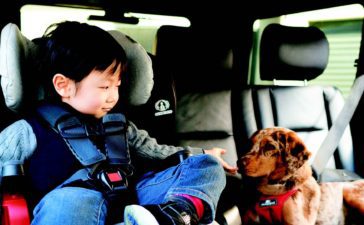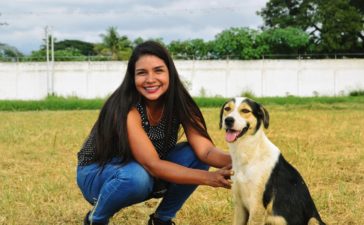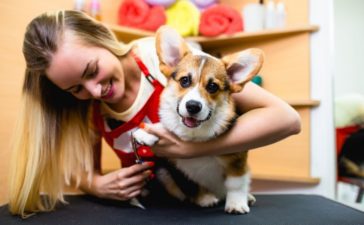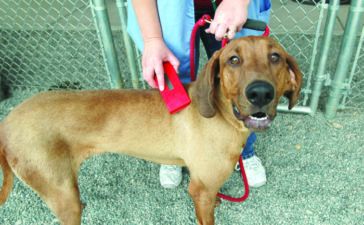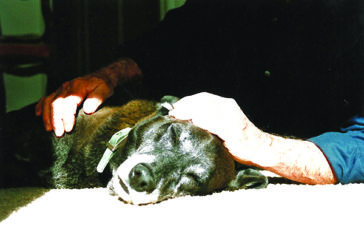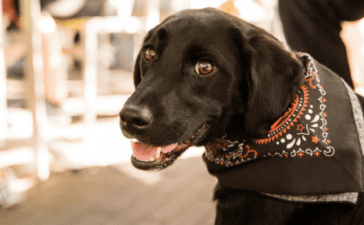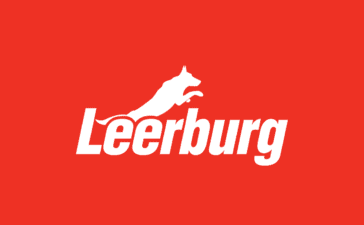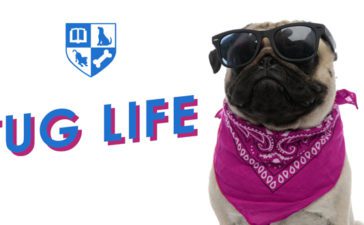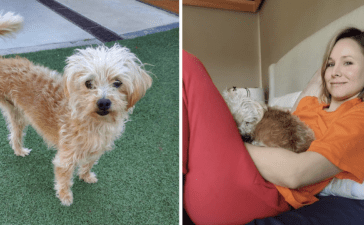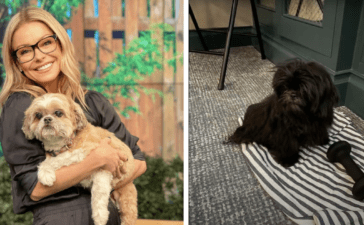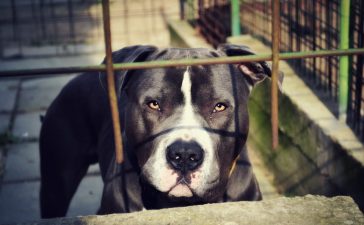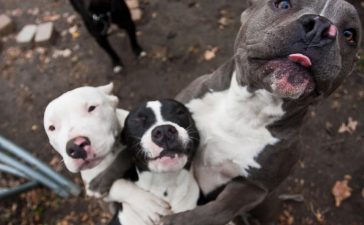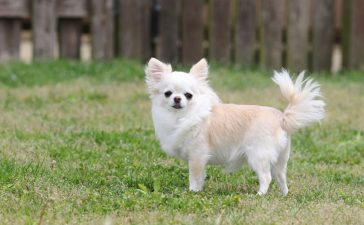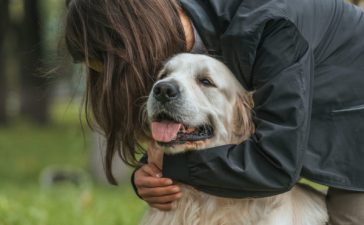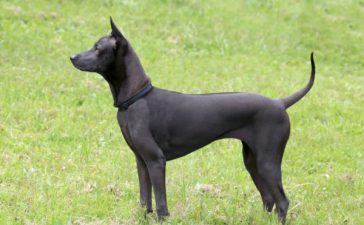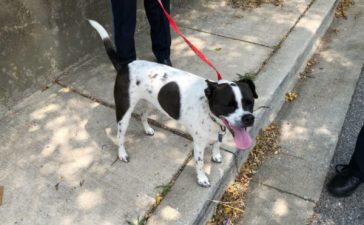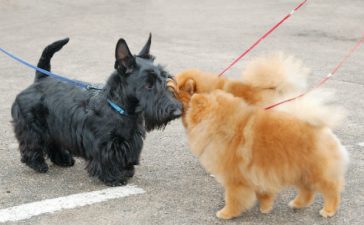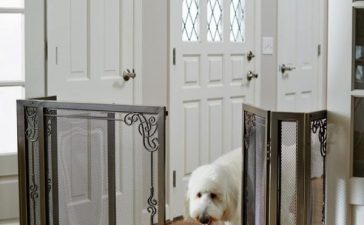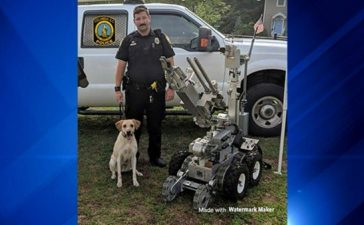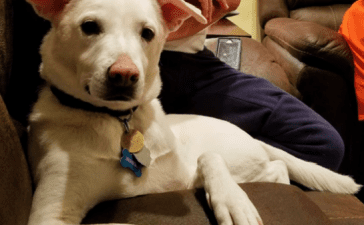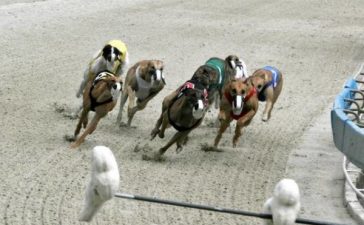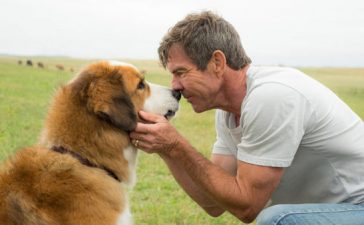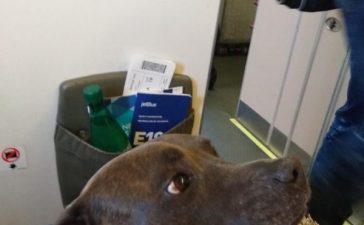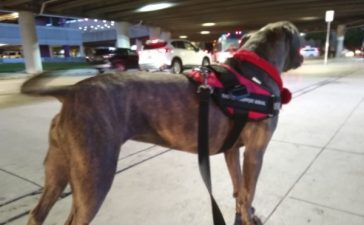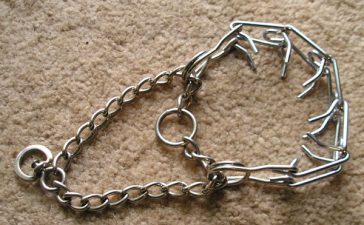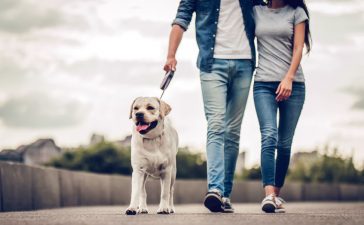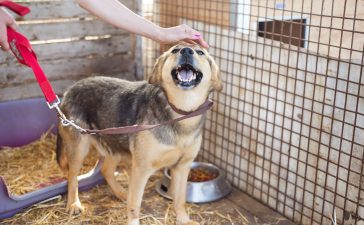An open letter from;
Paige Mazzoni
Chief Executive Officer
Canine Companions for Independence
We recognize at Canine Companions there is work to do. We are dedicated to being more intentional in our efforts for greater inclusion and diversity within the Canine Companions community of clients, staff, volunteers, board members and supporters. To date, our statements have been about supporting inclusion, diversity and justice, treating each other with respect and seeking to understand and communicate. We are now providing an action plan to support those statements. Our mission is to serve people with disabilities, regardless of race, gender, religion, socioeconomic status or background. We clearly have work to do to be more inclusive and to increase our diversity, both within our organization and within our broader community and outreach.
In 2019, we communicated our strategic plan anchored by our diversity pillar. The recent protests and Black Lives Matter movement have inspired greater urgency for our organization to do more, and to do it in a shorter time. Black Lives Matter has shone a light on the systemic injustices prevalent in our society. We stand with all those working for widespread social change to eradicate racism and injustice. We join the outcry for greater inclusion and equity. We are committed to having tangible and actionable goals behind that urgency.
In the last week, we’ve held several planning and brainstorming sessions with our staff across the country. We have begun to collaborate on how we can address unintentional bias in our organization, where we can do a better job of inclusive outreach, and how we can start taking immediate steps to increase our diversity and inclusion in our programs and communities.
Independence shouldn’t be limited to those who look or live a certain way. Disability reaches all races, classes and backgrounds, and Canine Companions will too.
Forum for Change – Our House First
Canine Companions staff are discussing how we meaningfully move forward in an actionable way. These are the first steps we are taking with what will be a long-term and ongoing process that we are committed to sustaining and resourcing:
- Forum for Change staff town hall meetings — In the next month we will begin holding staff town hall meetings throughout the country, focused on starting the conversations about where we have bias, how we can make meaningful change and discovering those in our organization willing to be part of a workgroup at each location to move actions forward.
- Processes review — We’re reviewing our key processes to make sure our questions, decision points and programs are free from bias. Even more, we will look for places where we can do more to answer specific needs of diverse communities and be more welcoming to those not as familiar with our organization or industry. Specific examples include our Team Training approach, our application processes and our graduate follow ups.
- Staff hours for community outreach — Each employee will be provided with eight hours for community engagement time each year, to be used for service, self-education or engagement with critical diversity and inclusion programs.
- Recruiting — We have begun and will continue to expand our efforts to recruit through diversity websites, schools and networks, with the goal of making our employee opportunities truly visible and open to all.
- Resource list — We are creating a resource list for all employees to include reading materials, webinars and informational websites. Every employee will be asked to use these resources in a measurable way and to bring their learning to our discussions and work.
- Training — We are creating a mandatory diversity and inclusion curriculum for all employees.
Evolving Our Community
- Outreach to diverse leaders — Increase outreach to diverse community leaders at a regional and national level, helping us gain understanding of their community needs and how we can support each other’s efforts.
- Continuing education — Implement interactive educational sessions for our volunteers and clients at annual conferences and community town hall meetings. We will expand these efforts and continue them from this time forward.
- Expanding our work — Actively focus on holding events, campaigns and educational sessions in more diverse areas to ensure our mission is accessible to all, and prioritize puppy raising clubs at historically black colleges and universities.
- Expand our Diversity Committee — Include diverse leaders in each region who can help us expand our outreach and implement our plan in a meaningful and impactful way.
Ongoing Commitment to Diversity
- Focus on internal roles working to achieve diversity in our organization and extended community.
- Increase diversity on our board of directors and within our organizational leadership.
- Develop long-term, action-oriented partnerships with diversity groups to enable ongoing outreach, engagement and two-way support for the long term.
We are at the very beginning of a transformation that will take time, hard work, self-awareness and honest communication. We know we have serious work to do, and we are committed to that work. Our employees at all levels of the organization are engaging right now to lay out the plan, gain feedback from the community and take steps to build a diverse, inclusive Canine Companions for Independence. Our initial efforts are more internally focused, which is where we must begin. Over time we will add to the actionable items focused on broader community and long-term diversity efforts. While we know there will be difficult discussions and challenges along the way, we are committed to change, and we will not shy away from these tough realities. We know the result of these efforts will be a stronger, more vital organization able to benefit from the opportunity of diversity and inclusiveness.
We look forward to your participation with our efforts.
| Respectfully yours,
Paige Mazzoni |
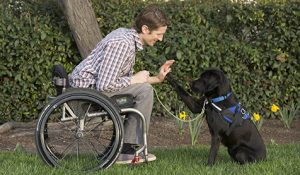
Service Dogs
Imagine having a dog that could turn on lights, pick up dropped keys and open a door. Canine Companions for Independence service dogs are partnered with adults with physical disabilities to assist with daily tasks and increase independence by reducing reliance on other people. A service dog can pull their partner in a manual wheelchair, push buttons for elevators or automatic doors, and even assist with business transactions by transferring money, receipts, and packages.
Click here to learn more about service dogs >>
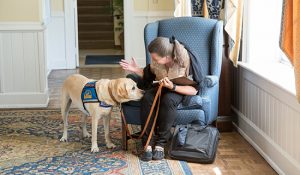
Hearing Dogs
Canine Companions for Independence hearing dogs are specially bred Labrador and Golden Retrievers who alert partners to key sounds by making physical contact such as nudging the leg or arm. Among the many sounds hearing dogs are trained to recognize and respond to are the sound of a doorbell, alarm clock, someone calling a name or a smoke alarm.
Click here to learn more about hearing dogs >>
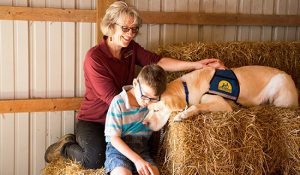
Facility Dogs
Facility dogs are expertly trained dogs that are partnered with a facilitator working in a health care, visitation or education setting. Canine Companions facility dogs are trustworthy in professional environments and can perform over 40 commands designed to motivate and inspire clients with special needs. Facilitators are working professionals responsible for handling and caring for the facility dog. Additionally, facilitators are committed to long-term employment where they directly serve clients with special needs a minimum of twenty hours per week. One of the most valued qualities of the facility dog is the unconditional love and attention it gives to the clients and patients with whom it interacts.
Click here to learn more about facility dogs >>
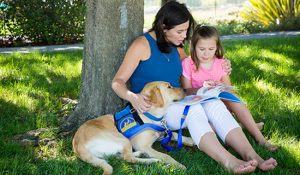
Skilled Companions
Our skilled companions are trained to work with an adult or child with a disability under the guidance of a facilitator. A facilitator is typically a parent, spouse or caregiver who handles and cares for the assistance dog, encourages a strong bond between the recipient and the skilled companion dog, and is responsible for the customized training needs of the dog.
Click here to learn more about skilled companions >>
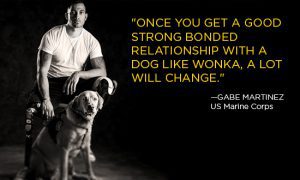
Assistance Dogs for Veterans
Canine Companions recognizes the urgent and growing need for programs that provide support to veterans with disabilities. Many of the brave men and women returning home from combat with disabling injuries experience a litany of new challenges.
Often, they face difficult transitions back to civilian life as well as uncertain futures with new disabilities. Canine Companions assistance dogs can help veterans regain independence, pride and hope. Beyond much-needed physical assistance, the love, loyalty and positivity of a canine partner can make a profound, lasting impact on someone dealing with difficult emotions that are hard to communicate.
“Just having someone with me to help do things that are difficult for me really affects my life positively.” – Charlie with his service dog Devon
Click here to learn more about the Veterans Initiative >>
With the increase in military veterans returning with Post-Traumatic Stress Disorder (PTSD), in 2018 Canine Companions launched a pilot program to directly place service dogs with veterans with PTSD.
Dogs are trained in tasks including anxiety and nightmare interruption, turning on lights, retrieving items, and supporting their handler in crowded public situations that might provoke anxiety for individuals with PTSD.
Applicants for the PTSD program must be United States Armed Forces veterans. Currently, this program is only offered in our Northwest and South Central regions, and for any applicants living within 200 miles of our training center in Medford, New York.






